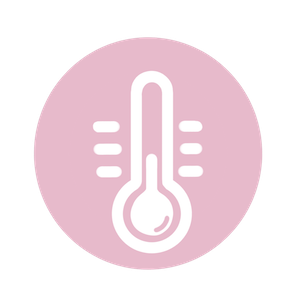Breastfeeding when you are sick
Breastfeeding

Doctors usually recommend moms to continue breastfeeding when sick, because the extra antibodies in your breast milk can reduce the risks of your baby contracting that same illness.
Continuing breastfeeding while sick
If you have a seasonal cold, flu, fever, sore throat, or cough, you can continue breastfeeding your baby. In fact, many doctors even recommend persisting with breastfeeding. Since your body produces more antibodies to fight the illness, your baby will get such antibodies by drinking your breast milk — reducing the chances of the baby contracting the same illness. You can also continue breastfeeding if you have stomach aches, diarrhea, or vomiting as such illnesses are usually not transmissible through breastmilk.
What to do to recover and support your baby
Here are a few things you can do to recover faster and continue to offer good care to your baby.
- Take plenty of rest and water: Your body can become even more dehydrated if you are vomiting or having a running stomach, so drinking plenty of water will rehydrate the body and prevent a reduction in milk supply. Resting and sleeping are also crucial in helping the body fight the infection and recover.
- Pump: If you don’t feel like breastfeeding when you are ill, it is perfectly fine. It will cause a temporary decline in milk supply but can be restored once you have recovered. Alternatively, you can try breast pumping to avoid a reduction in milk supply or mastitis — your helpers can feed your child for you.
- Practice good hygiene: To prevent your baby from contracting the same illness you have, practice preventive protocols such as washing hands, wearing face masks, and covering your mouth when sneezing or coughing near your baby. You can also have your spouse or family members help with diaper changing, bathing, and preparing food to minimize the risk of spreading the infection.
- Eat healthy diets: Apart from continuing a well-balanced diet, loading up on vitamin C and Zinc can help boost your immune system to fight off the infection. Good sources of vitamin C and Zinc include broccoli, citrus fruits, eggs, yogurt, and meat.
- Ensure safe medication: While most medications such as ibuprofen, paracetamol, or decongestants are safe to take while breastfeeding, it would be best to consult with a pharmacist or doctor before taking one.
When to stop breastfeeding
If you are taking medications for or have the following conditions, you should not breastfeed.
- HIV infection
- Human T-cell lymphotropic virus Type 1 or Type 2 infection
- Tuberculosis
Other medications that should not be taken while breastfeeding include:
- Sleep aids medicines
- Cancer treatment or chemotherapy medication
- Illegal drugs
If you are uncertain about your health condition, contact your healthcare provider for further guidance and consultation on how to proceed with breastfeeding.
Verified:
Dr. Wanwadee Sapmee Panyakat (OB-GYN), license no. 41208 (17 November 2021)



